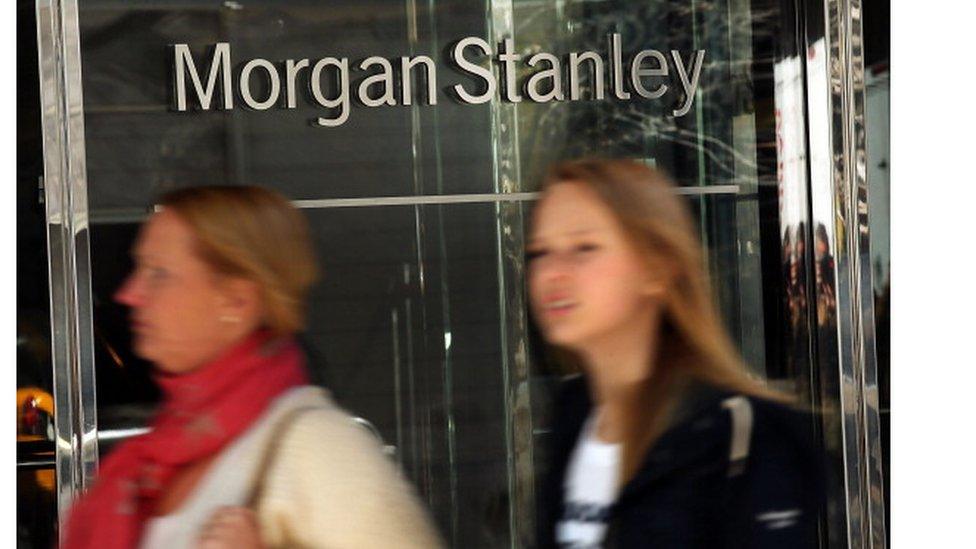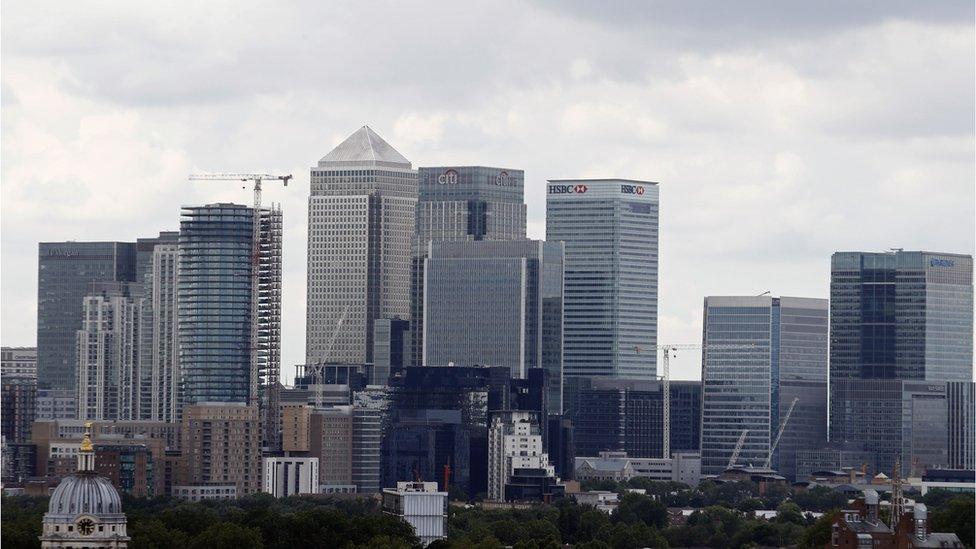Wall Street executives warn Brexit could hurt City
- Published

Morgan Stanley is one of the world's biggest investment banks
The heads of two major Wall Street companies have warned that the UK financial services industry could be damaged by Brexit.
President of investment bank Morgan Stanley, Colm Kelleher, said the City would "suffer… the issue is how much".
Meanwhile, Rob Kapito, head of one of the world's largest investment houses Blackrock, said there was "a lot of concern" in the financial community.
He also said voters had not been given enough facts before the EU referendum.
"The unintended consequences of Brexit will be significant for everyone across the UK," he said.
'Uncertainty'
Mr Kelleher said his bank's immediate concern was over whether to invest further in the UK.
This was because the terms of a potential Brexit deal were still unclear.
"It is that uncertainty that is causing problems," he told the BBC's Today programme.
However, he said a bigger worry was whether banks would retain their "passporting rights" after Britain leaves the bloc.
These rights currently allow them to trade across the bloc without the need for individual country licences.
Blackrock president Rob Kapito says firms are drawing contingency plans to relocate staff
He said: "I am convinced that London will retain its reputation as a prestigious global financial services centre.
"But clearly some size of our businesses will have to be moved out of London into European headquarters with the absence of any passporting agreement - but it's very hard to ascertain what that will mean at the moment."
He also said Brexit was damaging efforts to implement the Capital Markets Union, a European Commission initiative to bolster the low use of capital markets to finance European companies and infrastructure projects. Mr Kelleher noted banks still finance 80% of lending on the continent.
For this reason he urged UK ministers and Brussels to include a "long transitional period" for banks as part of any Brexit deal.

Brexit could have a big impact on the staff of financial companies, said Blackrock president Rob Kapito
His comments were echoed by Mr Kapito, whose firm Blackrock manages assets worth almost $5tn (£3.8tn).
"I don't think there is any good [financial services] firm that has not already started to look at real estate in different areas outside the UK in case they have to move larger operations," Mr Kapito said.
"There is no one that doesn't have people looking at tax implications, investment implications, manufacturing implications."
He said the decision to leave the EU could have a big impact on financial companies' staff, too.
This is because many work "cross border" and many "have spouses that work cross border".
"There are very few answers to the questions will they be able to maintain their jobs, will they have to move home, where [Europe's] the financial centre might move to," he said.
- Published21 September 2016

- Published21 September 2016

- Published20 September 2016

- Published15 September 2016